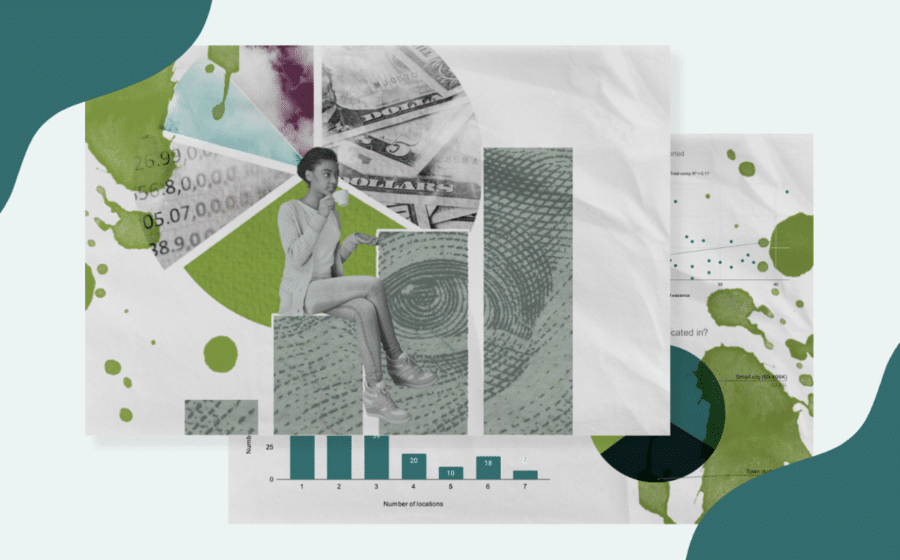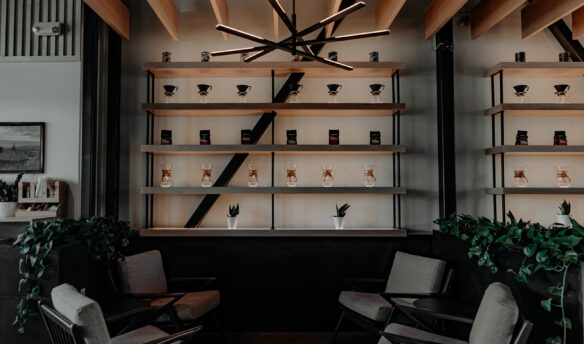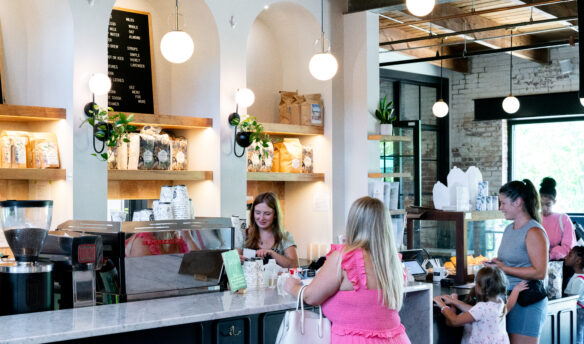It’s unclear how much coffee shop and roasting company owners get paid. Most estimates sprinkled throughout the internet are educated guesses at best or pure fiction at worst. There has never been a formal survey to understand the personal compensation of business owners in the coffee industry—until now.
Earlier this year, we invited coffee business owners in the United States to complete the first-ever Coffee Business Owner Salary Survey. We received 155 responses from business owners of cafes, coffee trucks, carts, and roasting companies across the United States.
We’re thrilled to release our findings, which have been reviewed and validated by a professional data analyst. We hope the results build transparency throughout the industry and help owners plan sustainable budgets for long-term growth and the well-being of the industry as a whole.
This is part one of a three-part series on our survey findings:
- Survey Results: The 2023 Coffee Business Owner Salary Report (you are here)
- Survey Results: What Do The Highest-Paid Coffee Business Owners Have In Common?
- Survey Results: Six Recurring Themes That Shine A Light On Coffee Business Owner Challenges
Special thanks to our community partners at Keys To The Shop and Espresso Outlet for helping get the word out and to Jesse from The Coffee Podcast for some early data work.
5 Key Findings from the Salary Survey
- The average coffee shop owner’s salary is $48,234
- The average coffee roaster owner’s salary is $53,374
- Owners of both coffee shops and roasters averaged higher salaries: $61,635
- High earners ($100K+) own slightly older businesses, have more locations, and reported focusing more time on growth, development, and strategy.
- 10% of business owners reported that they intentionally keep their own wages low, citing reasons like their businesses are new, they have debt, or the business cannot support them.
How We Designed the Salary Survey
Our goal for the first iteration of this survey was to create an initial benchmark for personal compensation among business owners and try to understand how compensation relates to business attributes, like years in business or metro size.
To capture raw income, we asked respondents to report both (1) regular salary or wages and (2) distributions from profit. We did not ask for estimates on compensation in the form of health insurance, internet reimbursements, and other non-cash benefits like equity value. We also did not ask about taxes, so it’s essential to recognize that the total compensation reported by owners is not the same as their final take-home pay.
In our analysis, we asked questions like:
- What’s the relation of personal compensation to a business’s age?
- How does city size impact salary?
- How does business type (cafe, roaster, caterer, etc.) impact personal compensation?
- What do the highest-paid business owners have in common?
Many of the conclusions below can be drawn with high degrees of certainty. However, we could only answer some questions with a low degree of certainty due to smaller sample sizes of some metro sizes or business types. We’ll note when conclusions have evidence but a lower certainty score.
There are many questions we could have asked that would have added further detail to our findings, but ultimately, we chose not to keep the survey focused and straightforward. For example, for this initial survey, we didn’t ask for personal identifying information of any of our respondents, how much debt the business holds, or how much of the total compensation is paid in taxes. In the future, we will continue to add layers of depth to the survey to understand better how coffee business owners pay themselves.
If you have any questions about the data, feel free to reach out.
The 155 Coffee Business Owners We Surveyed
We broke survey respondents into three core categories of business owners: coffee shops, coffee roasters, and carts, trucks, and catering operations. We made it so that one business owner could check all the boxes that applied to their business (potentially putting them in all three categories). Here’s how it turned out:
- 83% of respondents own a coffee shop (112)
- 61% of respondents own a coffee roasting company (95)
- 14% of respondents own a coffee cart, truck, or catering company (22)
- 9% of respondents identified as owners of all three business types (14)
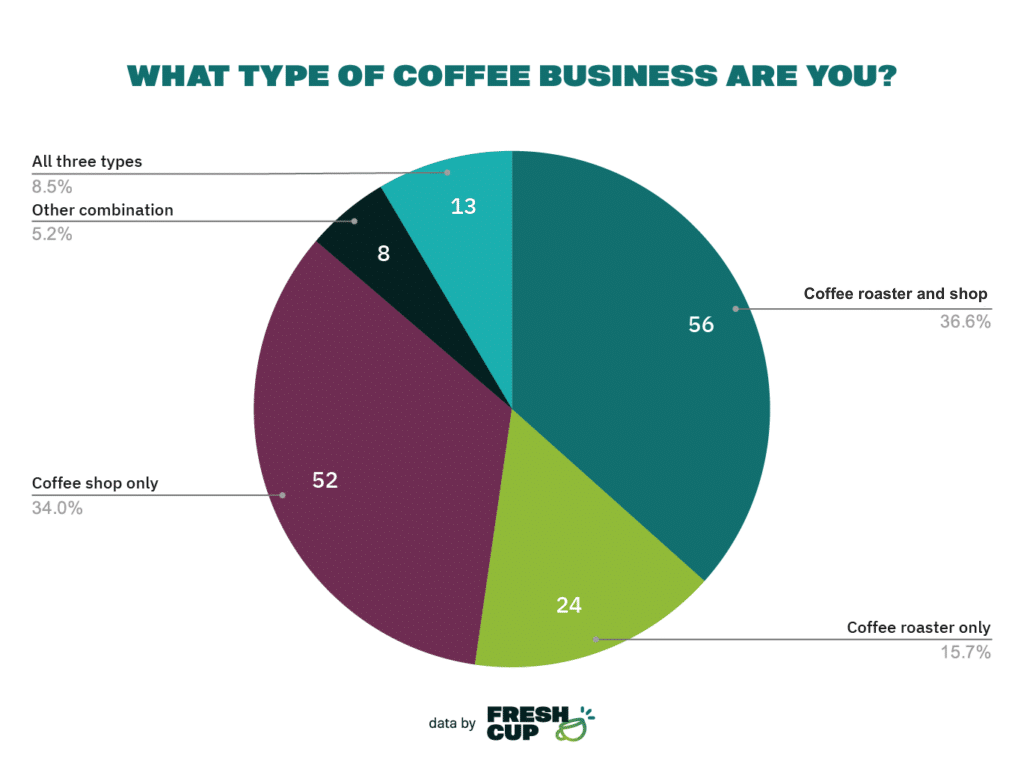
We asked respondents about their business’s metro size.
- 30% are in a town (47)
- 33% are in a small city (51)
- 9% are in a large city (14)
- 12% are in a small metro (18)
- 14% are in a large metro (22)
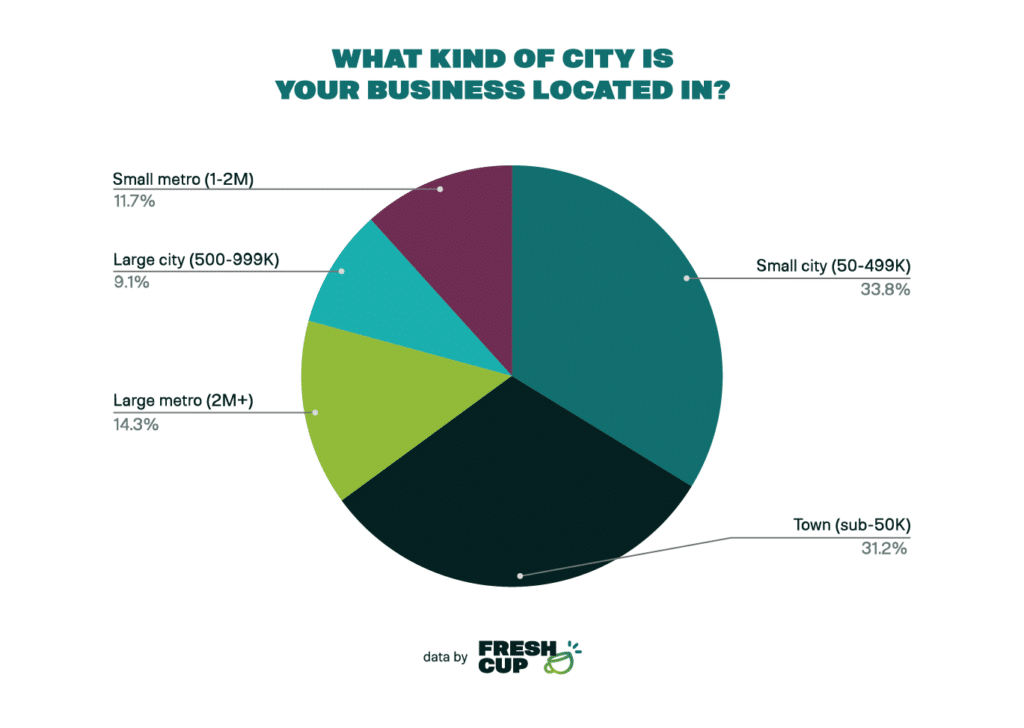
We asked respondents how many hours, on average, they work per week.
- 8% work 0-20 hours (13)
- 9% work 21-30 hours (14)
- 25% work 31-40 hours (39)
- 23% work 41-50 hours (35)
- 20% work 51-60 hours (31)
- 7% work 61-70 hours (10)
- 7% work 70+ hours (10)
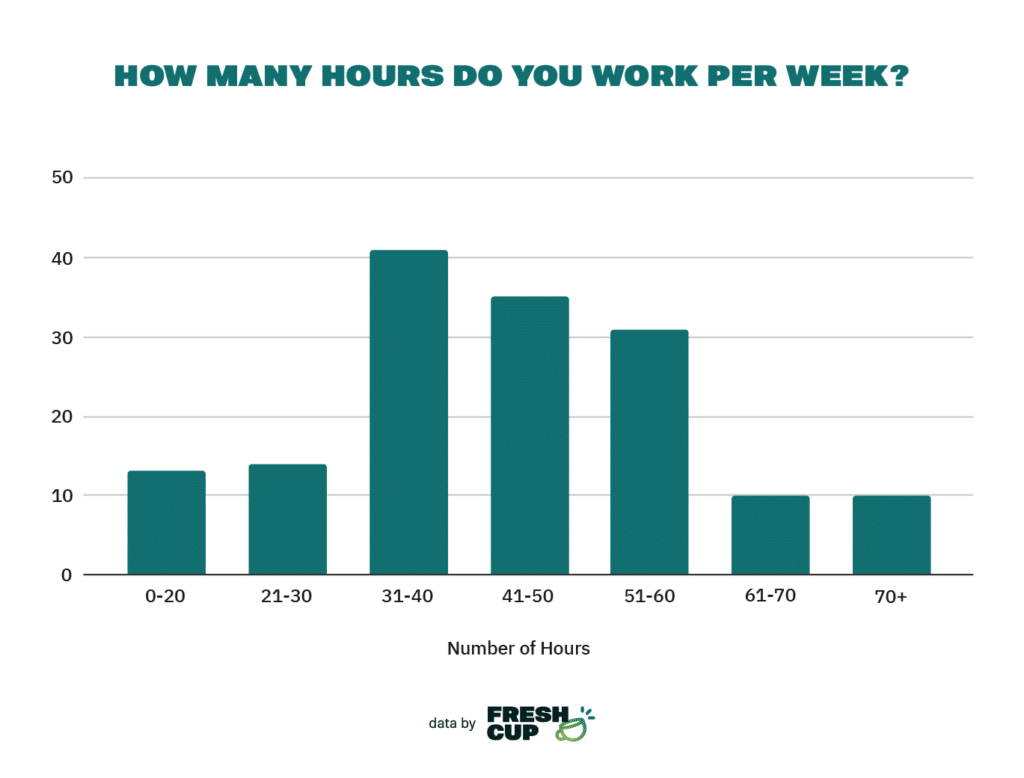
We asked respondents how many locations they have.
- 55% have one location (86)
- 17% have two locations (27)
- 8% have 3 locations (13)
- 7% have 4+ locations (11)
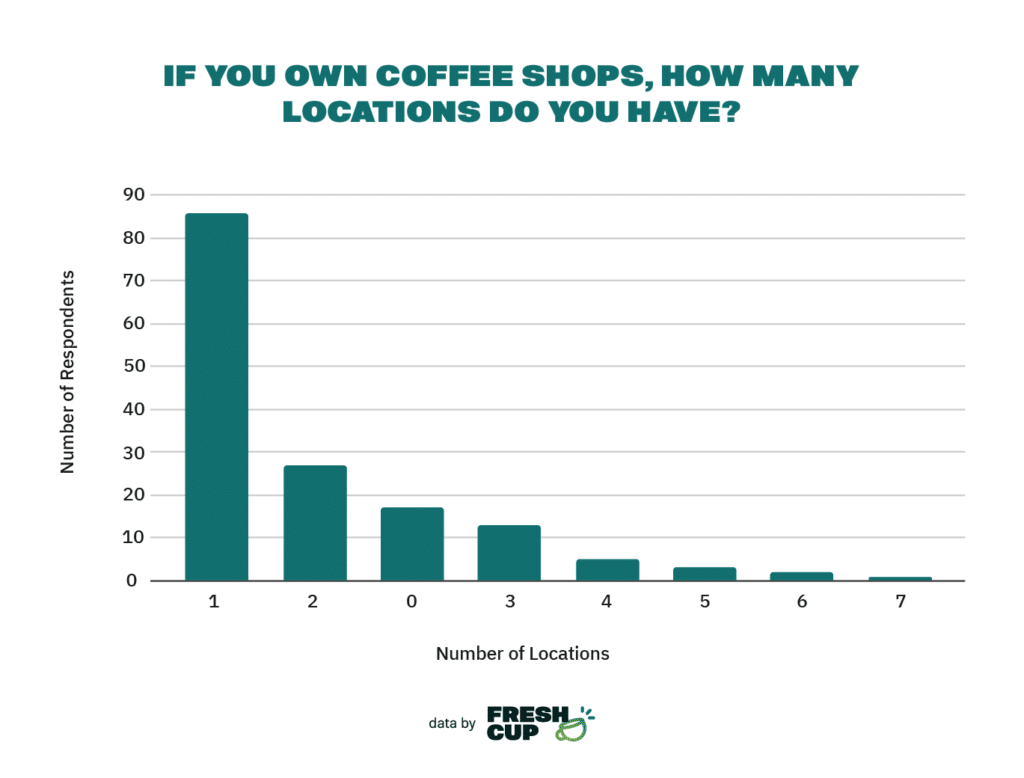
We asked respondents what percentage of the business they own.
- 61% own 100% of the business (94)
- 11% own more than 50% of the business (18)
- 13% own 50% of the business (21)
- 13% own less than 50% of the business (21)
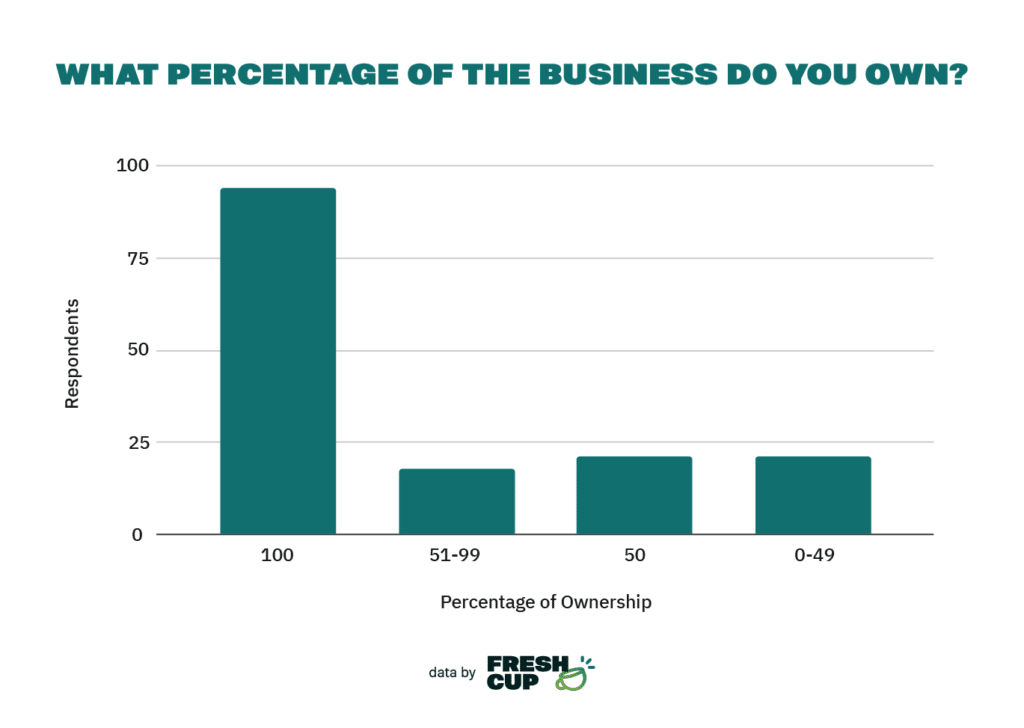
We asked respondents how many years their business has existed.
- 43% were under five years old (66)
- 27% were 6-10 years old (42)
- 13% were 11-15 years old (20)
- 17% were 16 or more years old (26)
- One respondent’s business has been around for 88 years
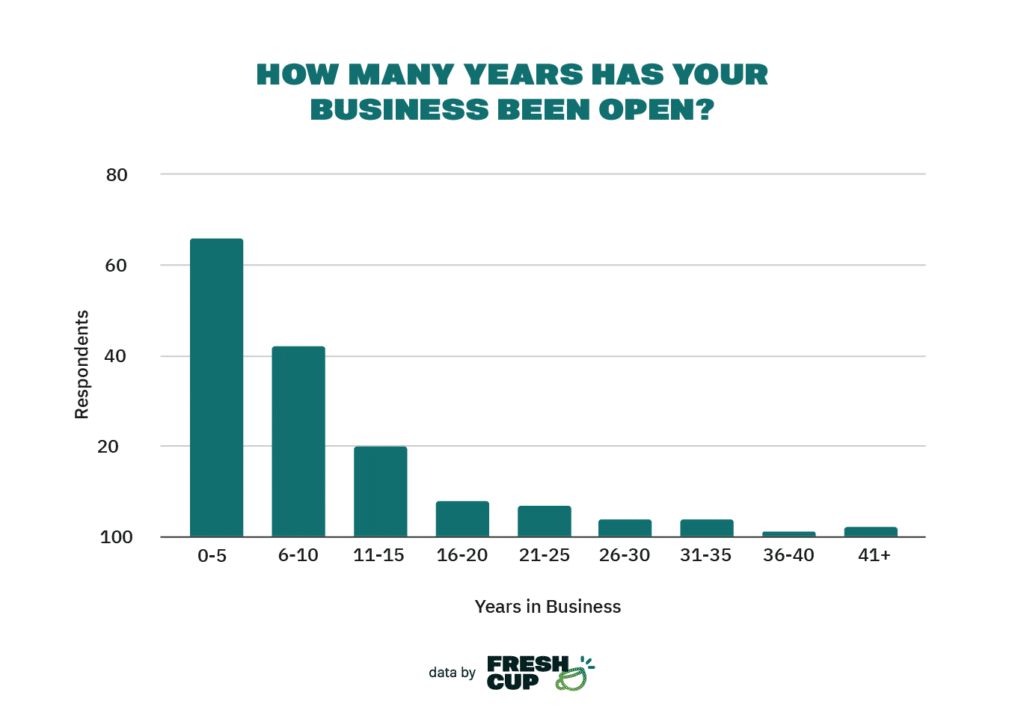
We asked an open-ended question about what the typical workday looks like. Coffee business owners responded with a wide array of duties and responsibilities. Most common “work typically looks like” answers included:
- Roasting coffee (54 mentions)
- Barista and coffee service (57)
- Growth and marketing (50)
- Ordering and inventory (28)
- Hiring (22)
- Management (21)
- Day-to-day operations (21)
- Training (14)
- Payroll (12)
Deep Dive: How Much Do Coffee Business Owners Make?
We broke down core numbers for business owner compensation by what type of business they own (coffee shop, coffee roaster, or cart/truck/caterer):
- The average coffee shop owner’s salary is $48,234
- The average coffee roaster owner’s salary is $53,374
- Owners of both coffee shops and roasters averaged higher salaries: $61,635
- Owners of all three business types had the highest average salaries: $63,938
Averages, however, don’t always tell the whole story. There were many outliers among owners of coffee roasting businesses (including one with a $375,000+ salary) and owners of businesses that included a cart/truck/caterer, which skewed the average upward while leaving the mean lower. The mean salary for coffee roasters was only $25,000, and the mean for either shops or roasters with a cart/truck/catering arm was $32,500— only half as much as the average.
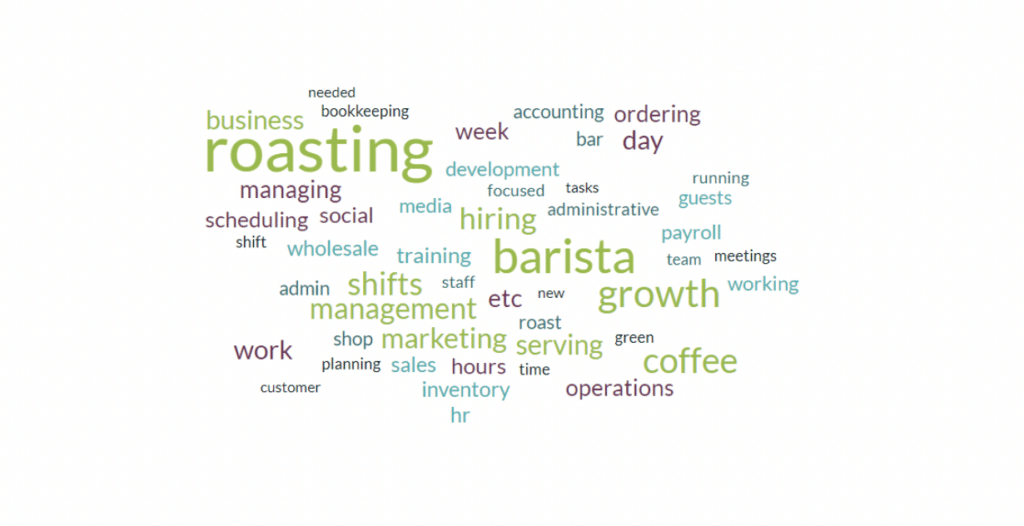
Coffee roasters were most likely to report $0 in income for 2022, primarily from businesses under two years old.
The average coffee roaster owner earned 10.6% more than the average coffee shop owner. However, this is a low-confidence conclusion, and evidence points towards other factors causing a more meaningful difference between owners of coffee shops and owners of roasting companies.
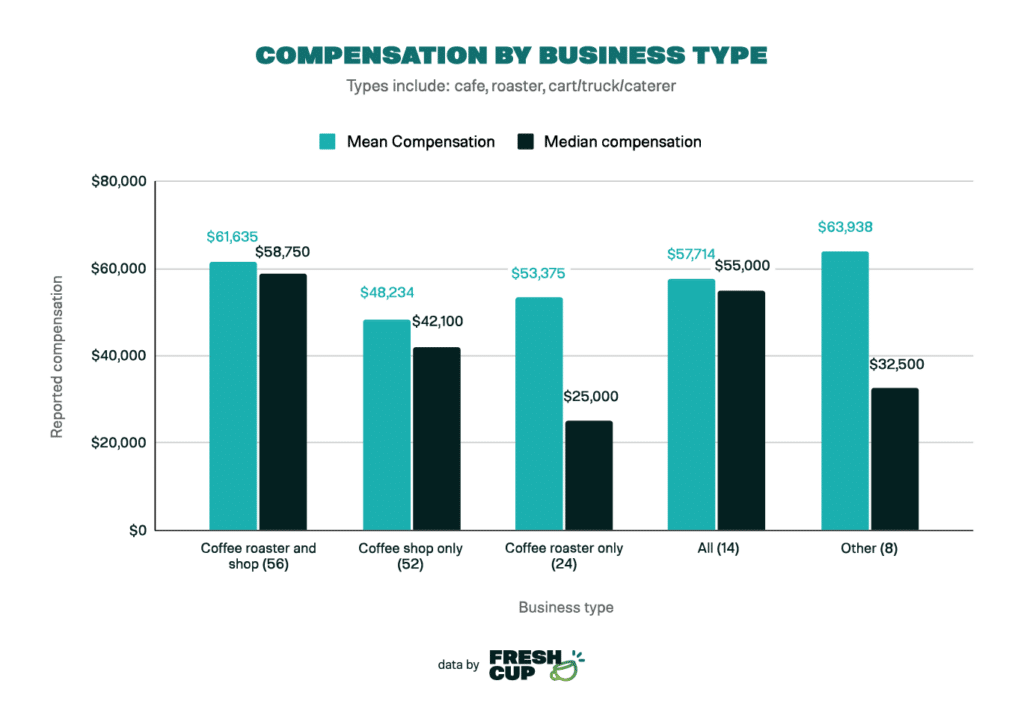
At first, it appeared that the highest earners were owners of diversified businesses that fit under two or all three categories. When looking at the complete survey data, business owners who checked just one category reported a median income of $40,000, a significant drop from $55,000 reported by owners of three-category businesses.
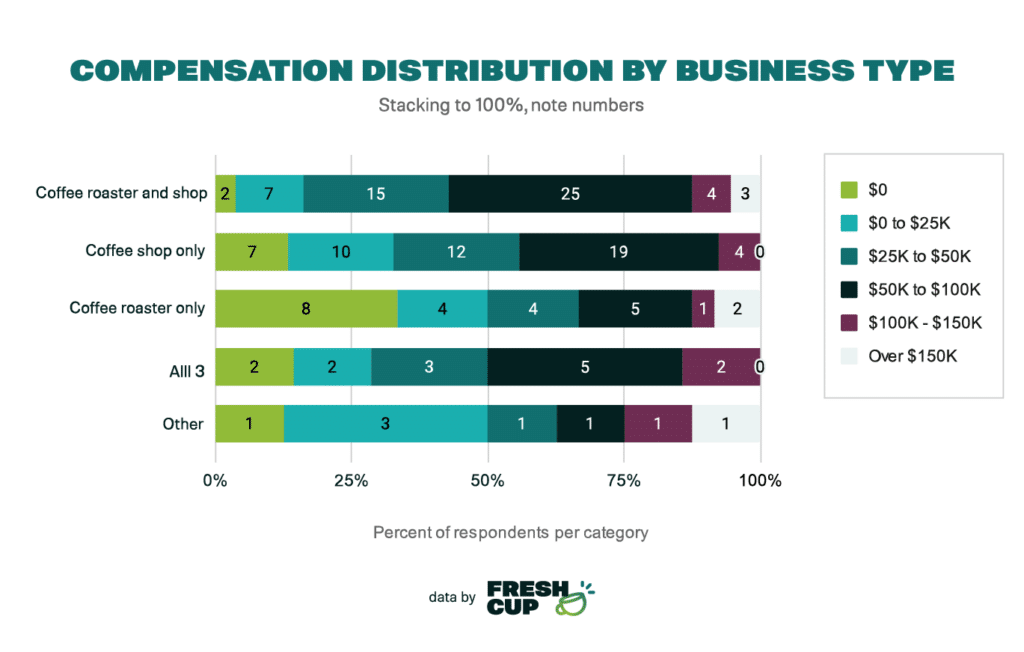
However, when we removed businesses under three years old, the difference among categories disappeared almost entirely. This confirms that younger businesses—driven mainly by new roasters where the owner has another full-time job, according to the data—generate lower compensation for owners and indicates that a business’s complexity does not strongly correlate with owner compensation. In other words, an owner of just a coffee shop has roughly the same earning potential as someone who owns a coffee shop, roastery, and catering business.
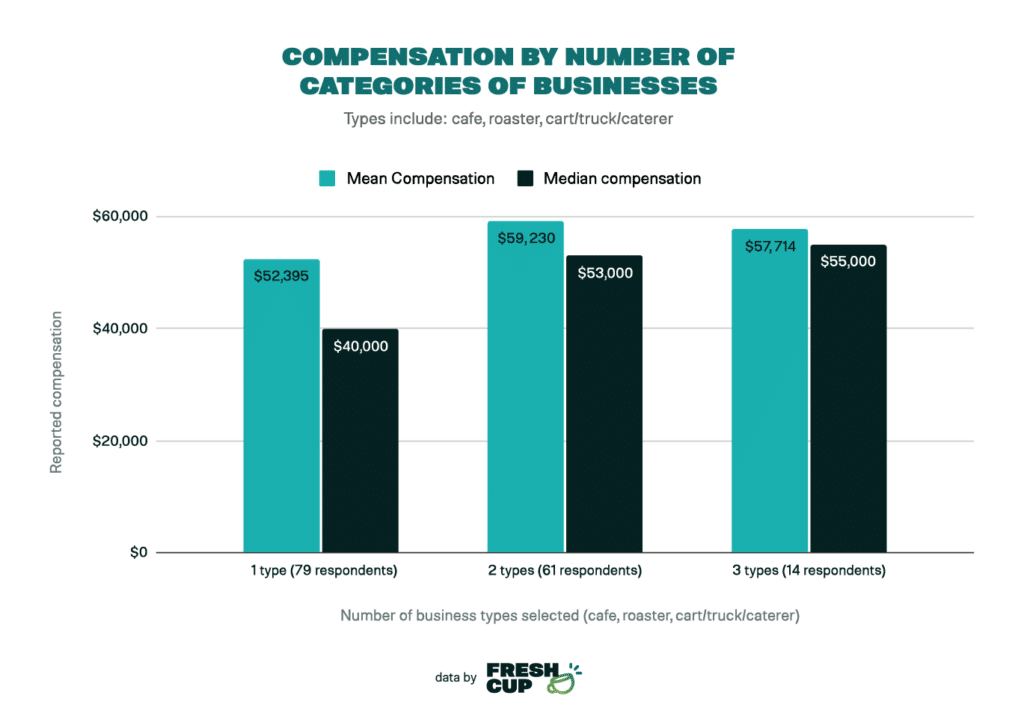
Up Next: More Data Deep Dives
Stay tuned for additional reporting on these survey results. We’ve got a lot more to cover.
Thank you to everyone who participated. You have helped establish the first benchmark for personal compensation among coffee shop and roasting company owners. Your insights will be invaluable for entrepreneurs evaluating a potential future in the world of coffee.



